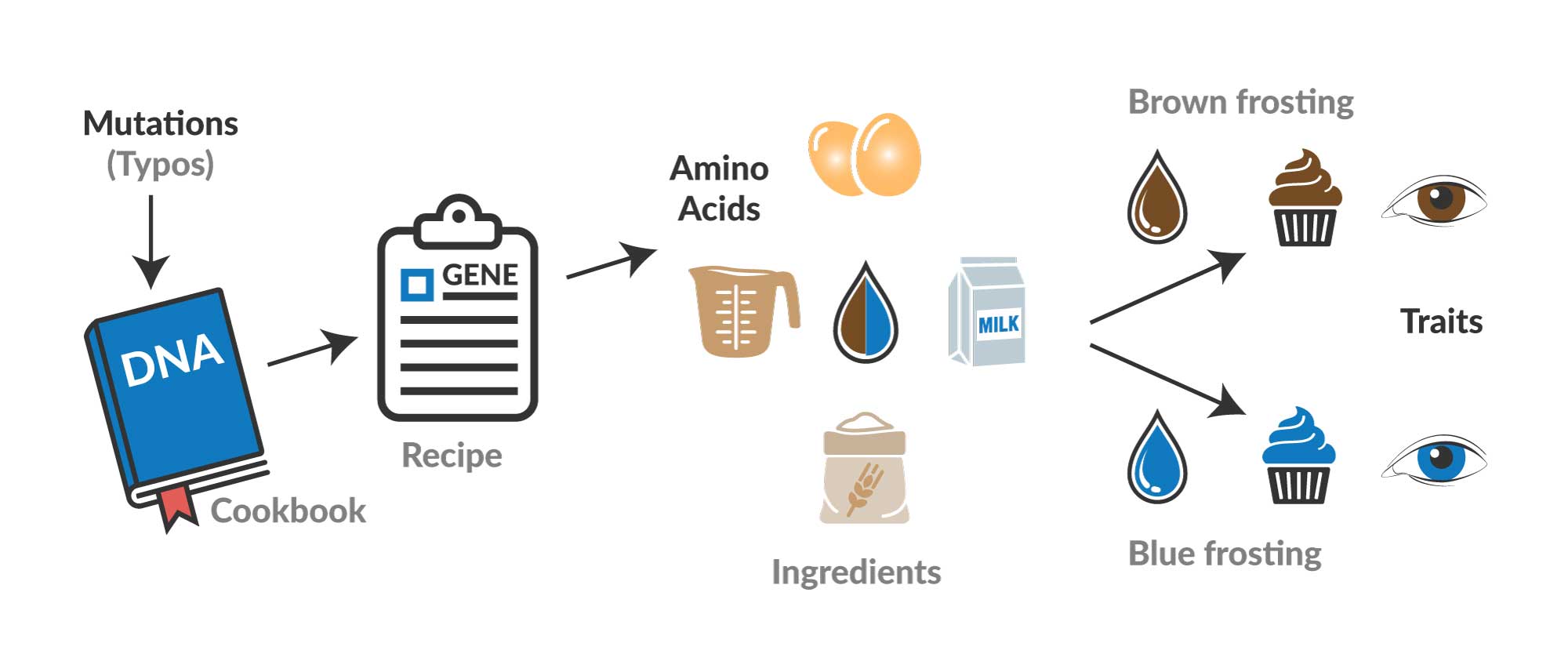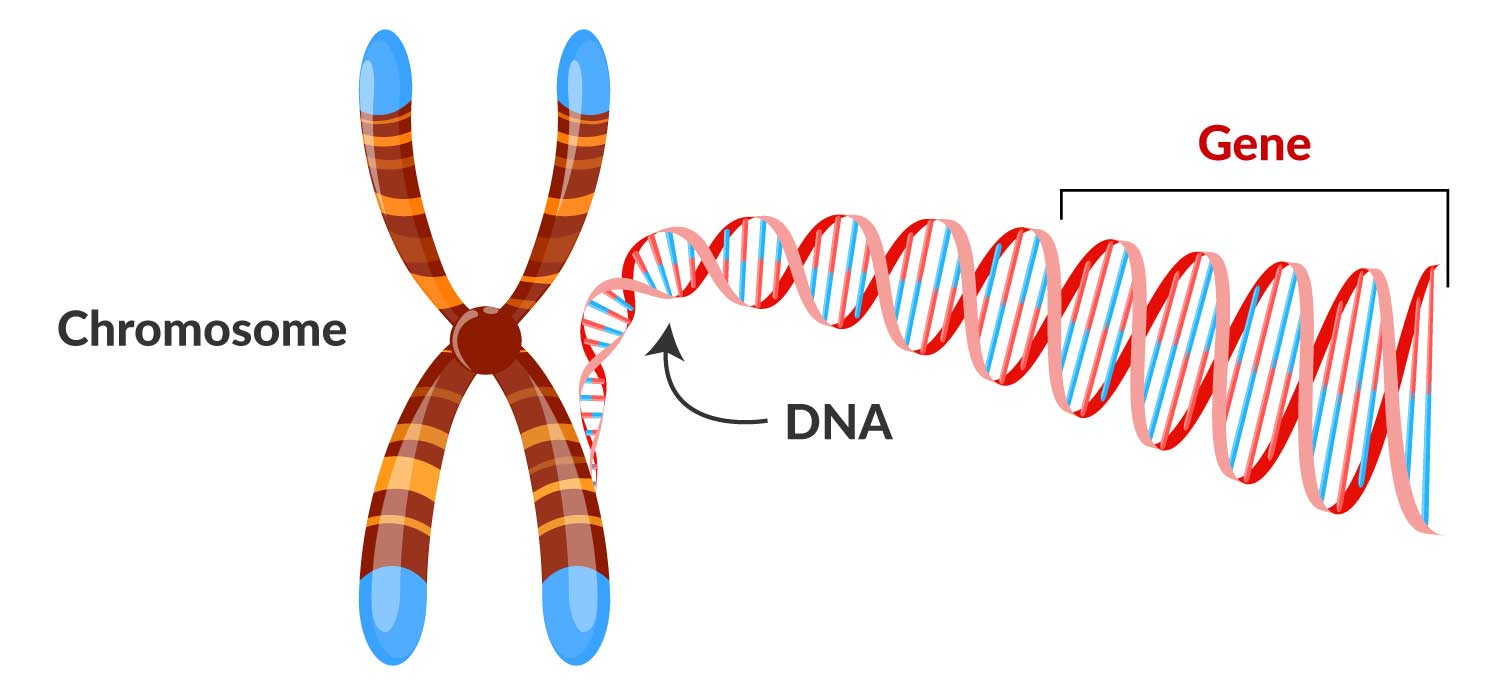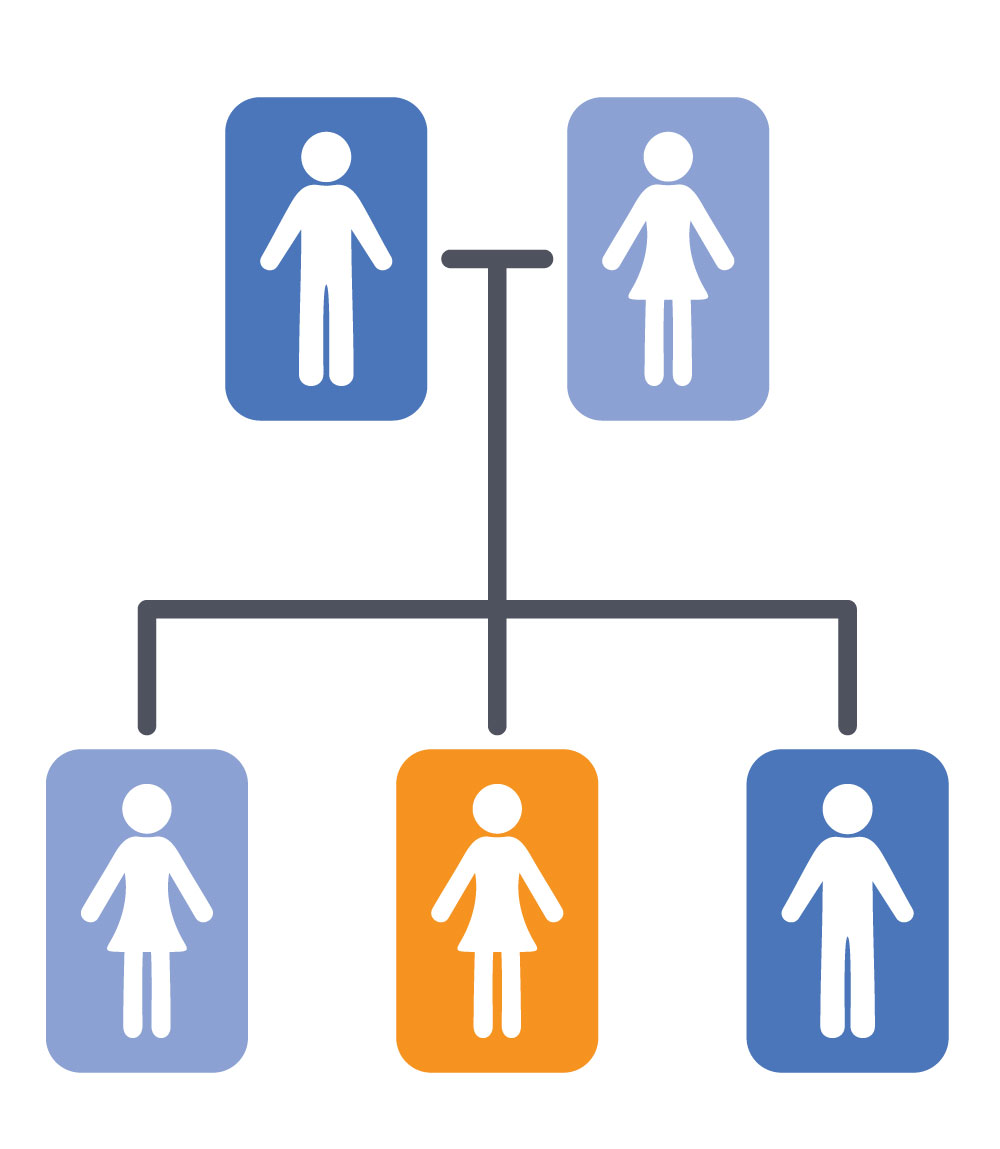
What is the Role of Genetics in Precision Medicine?
Consider your DNA a “cookbook” of your genetic makeup.
Genetics is the study of genes, which are segments of DNA that contain instructions for building proteins, the molecules that perform most life functions. Genes are passed from parents to offspring and determine various traits, from physical characteristics to susceptibility to certain diseases, like prostate cancer.
Understanding your genetic history and any potential predisposition to certain cell mutations can be determined by genetic testing.

What Genes are Involved in Prostate Cancer Precision Medicine?
BRCA1 and BRCA2 Genes: These genes are crucial for repairing DNA damage. Mutations in these genes can lead to a higher risk of cancers, including breast, ovarian, and prostate cancer. They are well-known for their role in hereditary breast and ovarian cancer, but they also significantly impact prostate cancer risk (NCI, 2023).
HRR Genes (Homologous Recombination Repair): This group includes BRCA1 and BRCA2, as well as other genes involved in repairing double-strand breaks in DNA. Mutations in these genes can lead to a failure in repairing DNA, contributing to cancer development. Other HRR genes include ATM, CHEK2, and PALB2 (VA Research, 2021).
MMR Genes (Mismatch Repair): These genes correct errors that occur when DNA is copied. Mutations in MMR genes can lead to conditions like Lynch syndrome, which increases the risk of several cancers, including prostate cancer (NCI, 2023).
What is Genetics and Genes?
Genetics:
The scientific study of genes and heredity (how certain qualities or traits are passed from parents to children as a result of changes in DNA sequence).
Gene:
A segment of DNA that contains instructions for building one or more molecules that help the body work.

What is a Genetic Mutation?
A genetic mutation is a change in the DNA sequence. Think of it like a typo in a book. Just as a typo can change the meaning of a sentence, a mutation can change how a gene functions.
How Do Genetic Mutations Happen?
Mutations can occur for various reasons:
- Inherited (Germline) Mutations: These are passed down from parents to children. If a parent has a mutation in their DNA, it can be passed to their offspring.
- Acquired (Somatic) Mutations: These happen during a person’s life and are not inherited and are not passed on to children. They can result from factors like exposure to radiation, chemicals, or even errors when cells copy their DNA during cell division.
GERMLINE MUTATION

- Inherited “germline” mutation
- 10% of prostate cancer
- Genetic testing assesses one’s risk for prostate cancer
SOMATIC MUTATION

- DNA mutation “not passed” on to child
- 90% of prostate cancer
- Genomic testing examines genes and helps predict prostate cancer behavior
Why is Understanding Genetic Mutation Important?
Understanding genetic mutations helps doctors to:
- Assess Risk: Determine if someone has a higher chance of developing prostate cancer.
- Personalize Treatment: Choose the best treatment based on the specific genetic changes in a patient’s cancer.
- Family Planning: Inform family members about their potential risks and help them make decisions about their health.
Who Should Consider Genetic Testing?
Genetic testing can provide critical information for managing prostate cancer. It is particularly useful for identifying inherited risk factors, guiding treatment decisions, and informing family members about potential risks.
Men with a Family History of Prostate Cancer
High-Risk Families: If you have multiple family members diagnosed with prostate cancer, especially at a younger age, genetic testing is advisable. A family history of related cancers, such as breast, ovarian, or pancreatic cancer, can also indicate a higher genetic risk for prostate cancer.
Specific Gene Mutations: Families with known genetic mutations like BRCA1, BRCA2, or other DNA repair genes should be particularly vigilant (Giri et al., 2022).
Men Diagnosed with High-Risk or Advanced Prostate Cancer
Advanced Disease: Genetic testing is highly recommended for men with advanced or metastatic prostate cancer. This testing helps in selecting targeted therapies and determining eligibility for clinical trials (Sokolova & Cheng, 2020).
Treatment Guidance: Understanding genetic mutations can inform treatment choices, such as the use of PARP inhibitors for those with HRR mutations.
Men with Known Genetic Mutations in the Family
Inherited Risks: If a family member has tested positive for genetic mutations associated with prostate cancer, such as BRCA1, BRCA2, or other DNA repair genes, it’s important for other men in the family to consider genetic testing (Giri et al., 2018).
Men with Early-Onset Prostate Cancer
Early Diagnosis: Men diagnosed with prostate cancer at a young age (typically under 55) should consider genetic testing to identify hereditary cancer syndromes that could influence treatment and family risk assessment (Nicolosi et al., 2019).
Men of Specific Ethnic Backgrounds
African American Men: African American men have a higher risk for aggressive prostate cancer and should consider genetic testing if they have a family history or other risk factors.
Ashkenazi Jewish Descent: Men of Ashkenazi Jewish descent have a higher prevalence of BRCA mutations and should consider genetic testing. (NCI, 2023)
Men Considering Prostate Cancer Screening
Proactive Screening: Those with a strong family history of prostate cancer or related cancers may opt for genetic testing to better understand their risk before starting routine screening. This can help tailor the screening approach to individual risk levels.
Understanding Genetic Testing for Prostate Cancer:
- Genetic testing is becoming a crucial part of managing prostate cancer.
- It helps in understanding the risk, diagnosing the condition, and deciding on the best treatment options for individuals.
- Genetic testing is a powerful tool in managing prostate cancer, offering personalized care and improving outcomes.
- It helps in making informed decisions about screening, treatment, and understanding familial risks.
What is Genetic Testing?
Genetic testing involves analyzing DNA to identify mutations that may increase the risk of prostate cancer. Tests can be performed on blood, saliva, or tumor samples.
Why is Genetic Testing Important?
- Risk Assessment: Identifies individuals at high risk of developing prostate cancer due to inherited mutations.
- Diagnosis: Helps in detecting prostate cancer at an early stage.
- Treatment Decisions: Guides doctors in choosing the most effective treatment based on genetic mutations.
Common Genetic Tests in Prostate Cancer Management:
- Prostate Health Index (PHI) and 4K Score: Improve screening alongside traditional PSA tests (Zhuang & Johnson, 2016).
- Oncotype DX, Prolaris, and Decipher: These tests help predict the risk of recurrence and guide treatment choices (Herberts et al., 2023; NCI, 2023).
Managing Prostate Cancer with Genetic Information:
- Early Detection and Screening: Genetic tests can identify high-risk individuals who need regular monitoring (NCI, 2023).
- Personalized Treatment Plans: Based on genetic mutations, doctors can choose targeted therapies like PARP inhibitors for patients with BRCA mutations (Sokolova & Cheng, 2020).
- Family Implications: Genetic testing also helps in understanding the hereditary risk, allowing family members to take preventive measures (Giri et al., 2022).
Genetic Counseling:
Genetic counseling involves discussing the implications of genetic testing results, which helps in making informed decisions about cancer management and understanding risks for family members (NCI, 2023).
